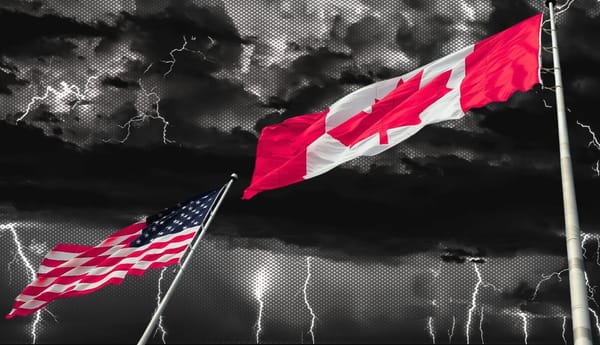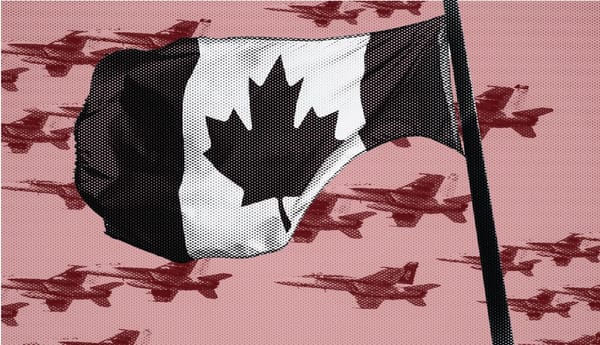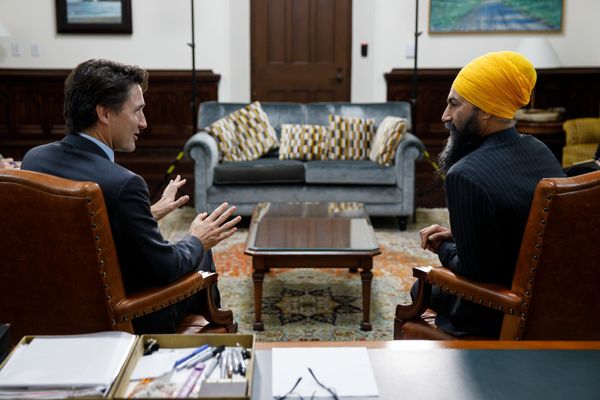Since coming into power last year, the United Conservative Party (UCP) in Alberta has introduced a series of legislation targeting the province’s labour movement, which has included allowing scabs to replace striking public sector workers and seizing control of the Alberta Teachers’ Retirement Fund without any input from educators.
This month, however, the UCP has finally taken off its gloves in its assault on unions with the ultimate goal of crushing the province’s labour movement.
On July 8, UCP Labour and Immigration Minister Jason Copping introduced Bill 32. When passed by the majority UCP government, it will place restrictions on picketing and allow employees to opt out of a union’s “political campaigning” on workers’ behalf.
The bill has been dubbed the “Restoring Balance in Alberta Workplaces Act,” which hints at a romanticized, apocryphal era when employees and organized labour were on equal footing. “Significant changes were made under the previous government that pushed the balance toward the union side,” Copping said. “We needed to make some changes to restore that balance.”
Indeed, Alberta’s former NDP government did make significant updates to the province’s outdated labour laws. These measures included modifying the Occupational Health and Safety Act to: codify employees’ right to refuse unsafe work, mandate workplace health and safety committees, and expand the laws surrounding workplace harassment. The NDP also increased the amount of money paid to workers injured on the job and to families of those who died at work.
Another piece of NDP legislation: made it easier to form a union by providing automatic certification in workplaces where more than 65 per cent of employees have a union card; provided unpaid leave for workers who are sick, injured, had a death in the family, a missing child or are victims of domestic violence; mandated that overtime pay be banked at time-and-a-half.
These modest changes ensured all workplaces must abide by a minimum standard for workers. No longer could employers deny their workers time off in the event of an emergency, mobilize to block unionization through a secret ballot, rip off injured employees or, perhaps most crucially, compromise workers’ safety in the pursuit of profit. With that in mind, it’s clear the latest UCP legislative onslaught is rooted in the assumption that providing the most basic protection for workers, unionized or otherwise, is a bridge too far.
The UCP is openly attempting to dismantle any remnant of NDP rule, and a major piece of that effort is restricting the activity of unions, who had advocated for greater worker protections well before the NDP was in power.
Bill 32 envisions a sort of à la carte unionism, where members can pick and choose the initiatives they want to fund. It divides the labour movement by forcing members to opt into activities the government deems political, which is defined as social causes or issues, charities or non-governmental organizations, organizations or groups affiliated with a political party. Alberta Union of Provincial Employees secretary treasurer Jason Heistad says the government is “weaponizing unclear legislative language” to promote its anti-worker agenda.
The justification for starving unions of funds that go toward political activity is that not all their members agree with the positions their union takes, whether it’s expressing solidarity with Palestinians, advocating a transition to a clean economy, opposing Canada’s meddling in Venezuela or, of course, organizing against the UCP’s corporate agenda.
But workers also don’t necessarily agree with the views of their employers, who are often on the opposite side of these issues. Unlike management, labour leaders are subject to democratic accountability. If you don’t like what your union leadership is doing, you can mobilize to have somebody else elected. Most of us would appreciate the ability to vote for our bosses, but in lieu of that the labour movement allows us some form of workplace democratic accountability.
Under Bill 32, unions will also be forced to provide financial statements outlining where dues are going, which Copping acknowledges will create some extra “red tape” for them. This is coming from a minister in a government that created the position of associate minister of red tape reduction. So, the plan is to cut red tape for big business and increase it for working people who want to collectively organize. The message here is plain: big business should be given free range while labour activities are strictly monitored.
The other major component of Bill 32 is placing restrictions on strike actions. Once passed, Bill 32 will legally prohibit picketers from blocking scabs’ entrance to the workplace, and will require unions to obtain explicit permission from the Labour Relations Board to picket secondary worksites where work has been outsourced due to strikes.
It gets worse, as this component of the bill is particularly troubling in conjunction with a piece of recently-passed legislation. Bill 1, which was given royal assent in July, imposes up to $25,000 in fines or six months imprisonment on those found to be blocking what the government defines as “critical infrastructure.” The ostensible target of this law is Alberta’s perpetually-vilified climate justice movement, but it also has implications for labour actions by weakening strike actions, the entire purpose of which are to disrupt business as usual.
Bill 32 is almost certain to be challenged in court. In a Alberta Federation of Labour news release published after the law was passed, president Gil McGowan signalled he was gearing up for legal action.
“What we have here is not just a profound break from Canadian laws, Canadian norms and Canadian traditions,” said McGowan. “It’s a fundamental attack on worker rights. And it’s an attack on democracy.” He contrasted the government’s draconian anti-worker laws with the massive corporate tax break passed under the cover of the pandemic stimulus.
CUPE Alberta was more explicit in its brief statement titled “Bill 32 is union busting”: “Mr. Kenney, we will see you in court.”
It remains to be seen whether a legal challenge will suffice in a province that has a pre-2015, 40-plus year history of conservative-appointed judges. And a Supreme Court challenge will be costly. But even then, shaping public opinion goes a long way in depriving the government of moral legitimacy.
As writer Abdul Malik reminds us in the Progress Report, the latest salvo in the UCP’s war on the public sector exposes the hollowness of our democratic institutions, affording us the ability to build something more desirable in their place.
“Bill 32 is not a threat. It is an opportunity,” Malik writes. “An opportunity to lay bare the contempt our current administration has for workers, and demonstrate completely the absolute lack of power our reactionary governments actually have.”
So, Albertans, let’s mobilize against this preposterous bill, and the broader anti-worker agenda it’s a product of, to show this arrogant government where the power in this province really resides.







